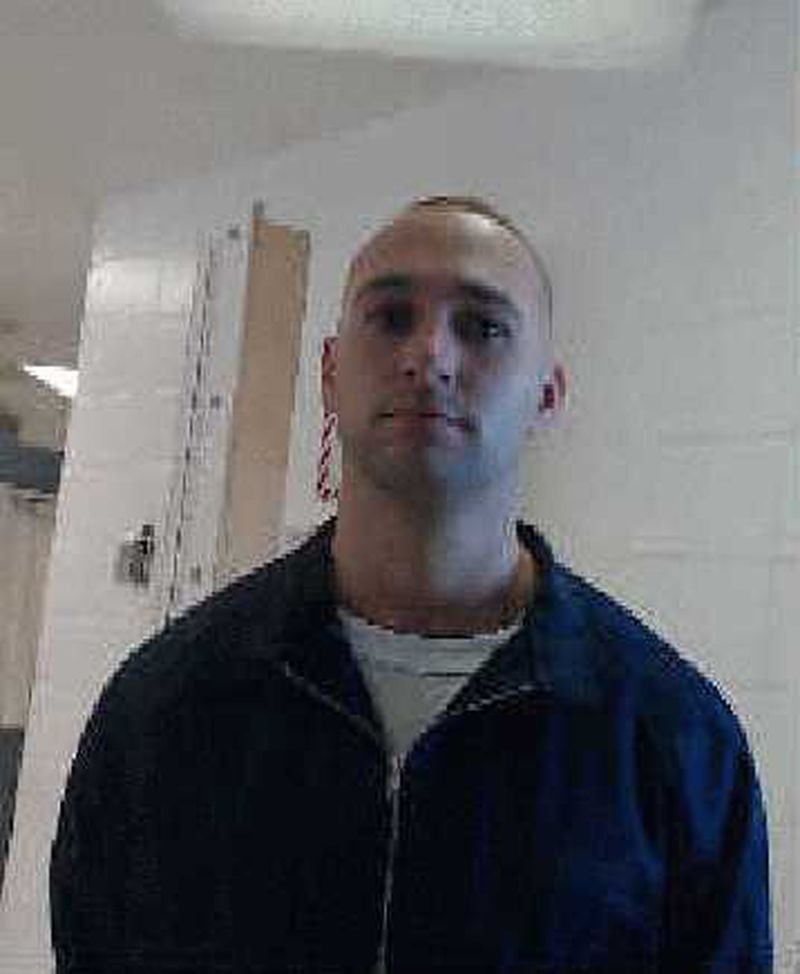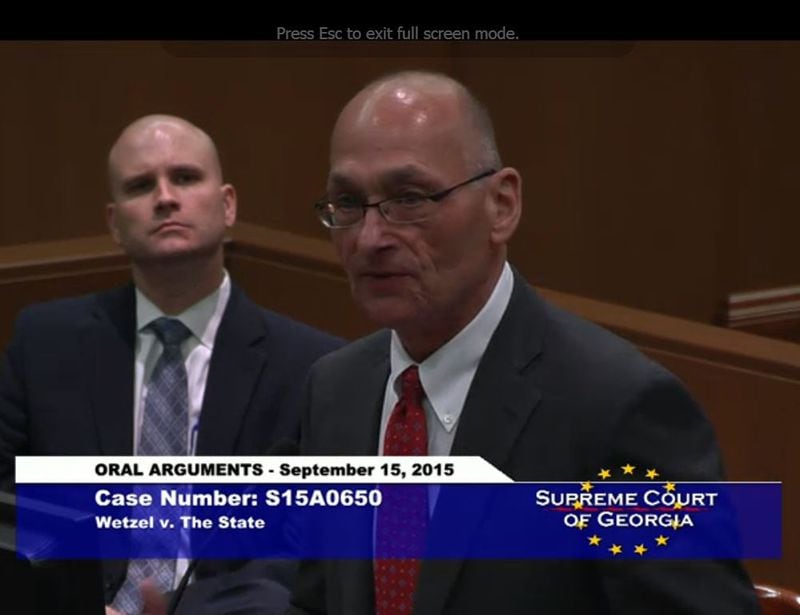A Savannah attorney this week made his first appearance before the Georgia Supreme Court in more than two decades to argue for an unusual client: his own son, who served time in prison for sending photos of his genitals to a 15-year-old girl.
"My name is Michael Wetzel and I represent the appellant, Jeremy Wetzel," the lawyer said when introducing himself to the justices, not disclosing the father-son relationship.
Jeremy Wetzel served a stint in prison and remains on probation for his crime, which he committed in 2011 while working as a paraprofessional at Oconee High School in Watkinsville.
His father is arguing that the son's conviction should be overturned. If the appeal is successful -- and questions posed by the court at Tuesday's hearing suggest that might happen -- the son's probation will end and he could submit a request to end a requirement that he register as a sex offender.
In 2011, Jeremy Wetzel worked as a parapro in a special-needs classroom at Oconee High. He became acquainted with a female student who worked in a student club that assisted special ed students.
Credit: Bill Rankin
Credit: Bill Rankin
Wetzel, then 24, began exchanging messages that became increasingly sexual in nature with the 15-year-old, identified in court records only as S.B.J. At one point, prosecutors said, Wetzel sent two emails with photos of his genitals to S.B.J. He followed up a few days later with a text message that asked, "What do I get in return?"
The student testified at trial that she then sent two photos of herself topless to Wetzel.
S.B.J. soon showed two of her friends the photos Wetzel sent to her, and her friends reported what happened to a teacher. School officials then fired Wetzel and called the police, who arrested Wetzel later that day.
In May 2013, an Oconee County jury found him guilty of violating the Computer or Electronic Pornography and Child Exploitation Prevention Act of 2007, which is a felony, and of the misdemeanor offense of electronically furnishing obscene material to a minor. He was sentenced to two years in prison followed by six years on probation. Wetzel was released from prison last November and is now living at home with his parents.
Credit: Bill Rankin
Credit: Bill Rankin
Michael Wetzel told the court on Tuesday that he and the district attorney's office pretty much agree on the facts of the case. Their main dispute, he said, is in how they interpret the law.
In part, the 2007 statute says it is against the law for someone who uses an online service to entice a child to "engage in conduct that by its nature is an unlawful sexual offense against a child." But no "unlawful sexual offense" was alleged in the indictment, Wetzel said.
"There's got to be some unlawful act that's alleged and proved," he told the court. Wetzel reminded the justices that his son had been charged with child molestation but was acquitted of that offense.
Justice David Nahmias, as is often the case, dominated the questioning. And the questions he posed to Assistant District Attorney Kristopher Bolden appeared to be devastating to the state’s case.
The law, Nahmias said, required the jury to find that Wetzel’s conduct violated a specific criminal offense outlined in the Georgia code.
When Bolden conceded that point, Nahmias reminded the prosecutor that he had taken a completely different position during the trial. During closing arguments, for example, Bolden told jurors they could decide, as voices of the community, whether an unspecified unlawful sexual offense had been committed.
“Did you actually argue to the jury the exact opposite (of what was required by law)?” Nahmias asked, not letting up.
After a long, painful pause, Bolden replied, “If I did argue that to the jury it is not what I was intending.”
At one point, Nahmias told the prosecutor, “I’m still trying to figure out how you say we affirm (the conviction) … when you argued it was up to the jury to figure out if it offended them.”
The court will render a decision in the coming months.
Outside the courthouse, after the arguments, Wetzel said he has a civil, not a criminal, law practice. But he noted he has handled numerous appeals.
As for what happened to his son four years ago, “It killed us,” Wetzel said of his family. But he said he was willing to do whatever he could now to help his son and get the convictions overturned.
About the Author








